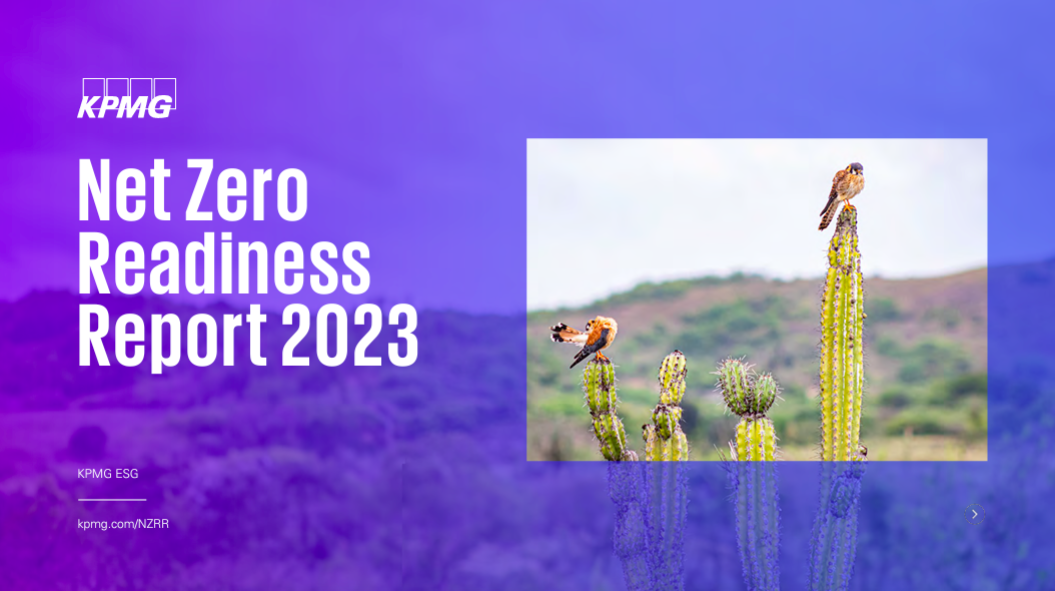Net Zero Readiness Report
Examining steps taken by 24 countries as well as key economic sectors to reduce the greenhouse gas emissions that cause climate change.
Published 05-17-24
Submitted by KPMG

KPMG published the Net Zero Readiness Index in 2021,1 a few weeks before the COP26 UN climate change conference in Glasgow. The event resulted in 153 countries putting forward new emissions targets for 2030 and more than 90 percent of world economic output and global emissions being covered by net zero agreements. Attempts to phase out the use of coal, the single biggest contributor to climate change, failed with weaker language to ‘phase down’ its use in the final agreement. COP26’s chairman Alok Sharma said that the conference had kept alive the hope of keeping global temperature increases within 1.5 degrees Celsius this century but added “its pulse is weak.”
The last two years have seen many countries taking steps in the right direction towards net zero, even if most have a long way to go. Some have announced significant new policies to support decarbonization, including the REPowerEU in Europe. Emissions trading schemes are expanding in several countries and the EU is phasing in its Carbon Border Adjustment Mechanism, an idea that other countries look likely to adopt. The bloc is also introducing regulations to block the import of products linked to deforestation, showing how some jurisdictions plan to go further faster to meet net zero pledges.
Next year will see companies in many countries starting to report on their climate change risks and plans.
Renewable energy production continues to expand rapidly around the world, investment is rising fast and there are indications that it is becoming harder to raise funding for some fossil fuel projects. Renewable production and the reshaped electricity grids it requires will inevitably impact on some local environments, their biodiversity and communities. We are going to see more conflicts between the local and the global, but if we want to reach net zero while keeping the lights on, we have to build new power infrastructure somewhere.
These issues are among those discussed in this Net Zero Readiness Report. It explores the readiness of 24 countries based on interviews with local KPMG specialists. This report also examines global trends in sectors that are key to tackling climate change: the economy, electricity, transport, manufacturing, buildings, infrastructure, oil and gas, agriculture and the blue economy.
Across these countries and sectors we can see plenty of examples of progress on decarbonization including growth in electric vehicle sales, although from a low level in most countries. On behalf of all the KPMG specialists involved, we hope this report can contribute to helping organizations quicken their pace on the long walk towards net zero.
Click here to download the full Net Zero Readiness Report 2023.

KPMG
KPMG
In today’s increasingly disruptive world of climate disasters, political conflict and societal inequalities, rapid ESG progress is crucial to achieving a more sustainable future.
KPMG, as a global organization, knows the intrinsic power of ESG to transform your business and our professionals can show you how to enhance trust, mitigate risk and unlock new value as you transform to build a sustainable future. Member firms’ services are holistic and practical to guide your teams to drive sustainable innovation across your business.
Through industry-leading expertise, data-driven technology and global alliances, KPMG’s experience across critical ESG issues means our professionals can assist you in creating the right roadmap for your ESG journey.
KPMG helps turn insight into opportunity for your business, people and the planet and designed our services to put ESG at the core of your operations — where it should be.
More from KPMG

